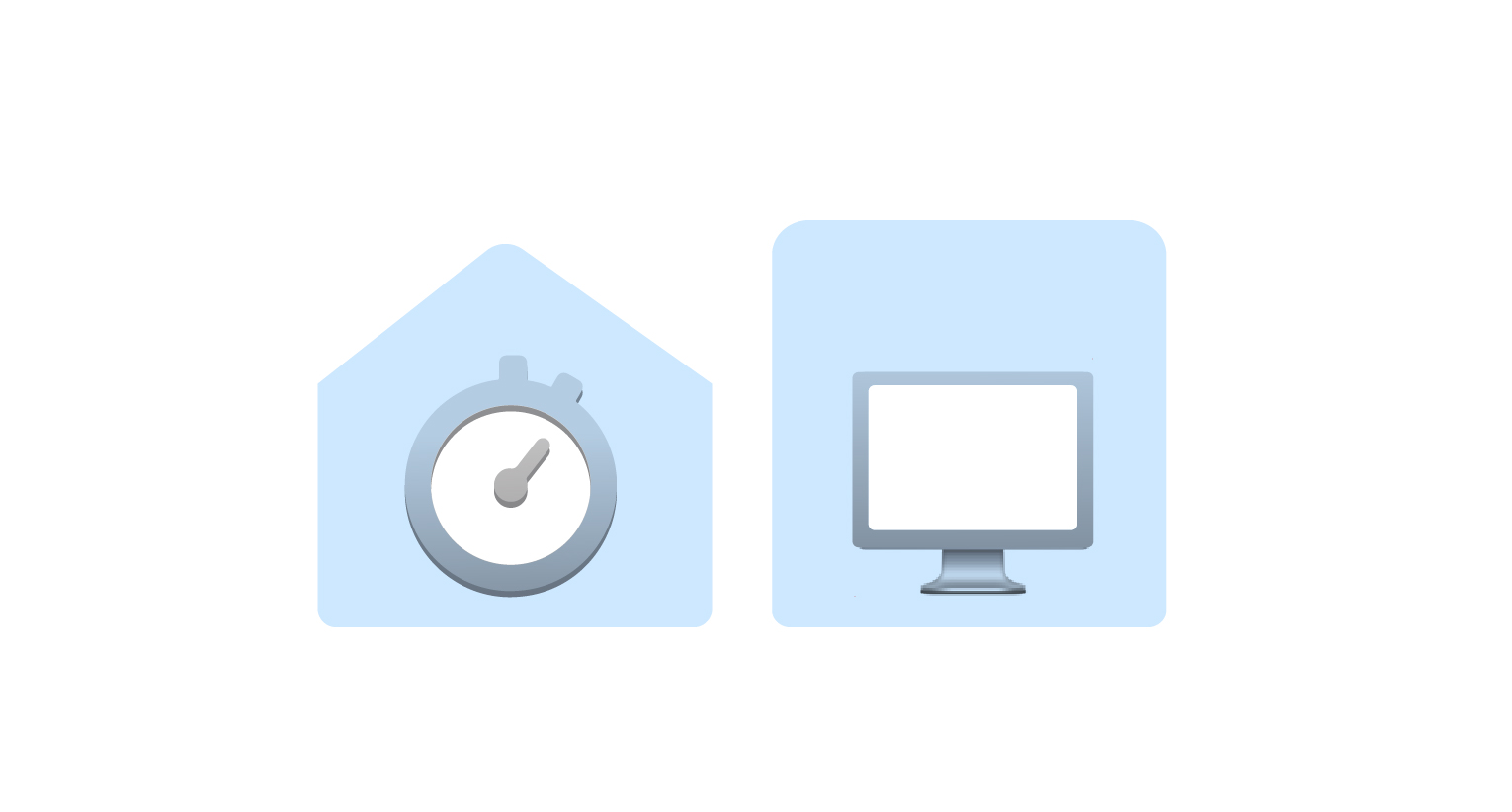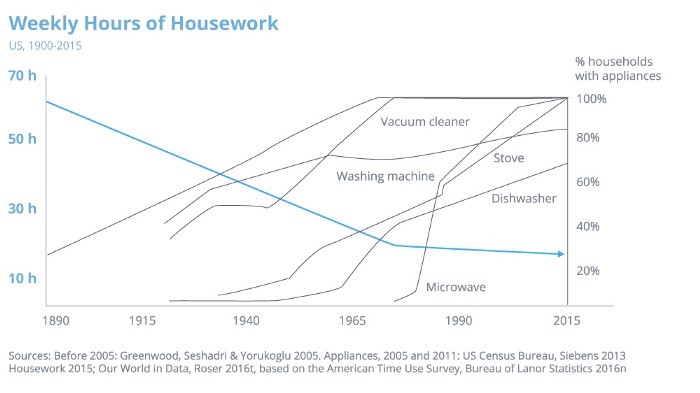
From household machines to workplace automation
Sep 3, 2021 10:36:06 AM
At its very core, automation is a form of technology which is designed to complete tasks with minimal human involvement. By relieving people of their repetitive and mundane tasks, we are free to focus our time on tasks which we enjoy, and which require our own creative and sophisticated inputs.
Since the dawn of time, humans have designed tools and machines to solve their problems, with computers and automation being the latest developments in our long history. In this blog, we take a closer look at the changing role of humans in our automated world, from the history of machines in our homes to the effects of automation on the workplace.
The impact of automation in the household
Imagine if you woke up tomorrow and every appliance in your home was removed, from the washing machine and dryer to the dishwasher, and vacuum cleaner. How much cleaning time would this add to your daily life, and would you prefer to return to this level of manual cleaning?
Chances are the increased amount of time you would need to spend cleaning your home, working, and juggling your daily life would leave you exhausted and desperate for the return of your home appliances. As you can see from the graph below, the use of machines is not a new concept in our lives, and it has helped us reduce the time we spend on housework from 70 hours per week down to 15 hours.

The machines within our homes are perfect examples of the automation which is available in almost every aspect of our lives. As we continually strive for new ways to create machines and tools which are able to complete both mundane and complex tasks on our behalf, there is a world of opportunities available with automation technology.
Today, many of us are investing in smart technology, such as thermostats, lights and sprinkler systems which can be controlled from anywhere in the world through our mobile phones. Almost every appliance in our home can be connected to a remote-controlled network, and this convenience is proving to be very popular. This level of home automation is a step closer towards the Internet of Things, which could see all home appliances assigned an IP address.
The days of being able to track down a lost shoe or a stray sock via our home networks are still quite a way off. However, imagine how useful it would be if your washing machine was able to decide which cycle to use and order its own detergent. Once you begin to understand the possibilities of home automation, it is clear that automation can be very useful in improving your quality of life.
The changing role of humans in the workplace
The aim of automation within the world is to eliminate tasks that can be completed by a robot or a computer more efficiently, so whether you work in a factory, a building site, or an office, there will be a place for automation in your workplace. However, the goal of automation is not simply to replace humans in the workplace, instead it is designed to allow individuals to use their skills elsewhere.
In the first industrial revolution, machines were able to take over the jobs of many manual labourers. Initially, the workers in the 19th century which lost jobs attempted to destroy these machines, however, the short-term impacts led to new employment opportunities, safer workplaces and improved efficiencies. The days of heavy lifting and unsafe manual jobs were gone, with machines able to complete these tasks quickly and with ease.
Imagine that you are building a log cabin, would you spend your time transporting the logs onto the site yourself? Or, would you spend your time more wisely by hiring a crane and completely the work with minimal stress and strain on your body in a much quicker time? Everywhere around us are modern examples of how machines and humans are working together to achieve improved efficiency and cost savings.
There will be roles which are naturally heading towards extinction as technology progresses, however it will never be able to eliminate the benefits of the human mind and touch. Human oversight will always be required, as computers will never have the ability to make judgment calls or moral decisions. All automated tools require a human touch to apply any meaning to the tasks they are required to complete, so humans will never be completely pushed out.
Automation does not have to be feared, it simply moves humans to the driving seat behind the control of these machines and algorithms. The continuing advancements in automation will require some adaptation within the workplace, with skills upgraded, roles reclassified and perhaps even new careers, however as a society we should harness the capabilities of automation and view the benefits as complementary tools.
The future of automation and next level AI
Technology is revolutionising the way we live and work, with new examples, almost every day of the impact automation can have on the world. A great example happened just last year when SpaceX astronauts were able to use full automation to dock into the International Space Station. This momentous achievement is a new era for space travel and comes just 50 years after Neil Armstrong manually landed on the surface of the moon.
Technology is advancing at a rapid pace, and while we may not all be ready for space travel just yet, there are examples of automation in our everyday lives. Automation has moved on from simple household appliances, and today it is present in the use of drones, self-driving cars, machinery and even the rollout of 5G across the country. As technology progresses and our reliance upon these levels of convenience strengthens, automation will continue to become a key component of our lives.
Automation, machine learning, neural network systems and artificial intelligence are capable of delivering huge breakthroughs for the human race, and by embracing the latest technology it may help us to overcome the future challenges the world has to face. The choice we all have is whether to embrace automation and utilise our own capabilities in new ways.

The key to effective automation is to ensure that it is effectively embedded within the critical aspects of process design so that the benefits of improved efficiency are felt. There are many opportunities to remove the repetitive and mundane tasks from the workplace, and as next-level AI progresses, so does its ability to handle big, complex data sets. With the help of our digital machines, we are able to untangle huge piles of data, so that we are free to concentrate on more interesting tasks.
If you are interested in exploring the various options automation can provide, we offer a free 1-hour consultation with our expert NUDGEIT team. We will take a closer look at how Microsoft Automation can improve the efficiency of your business, so that you can get kickstarted. To find out more, please contact our team today and engage with a Microsoft Automation Specialist.
Submit a comment